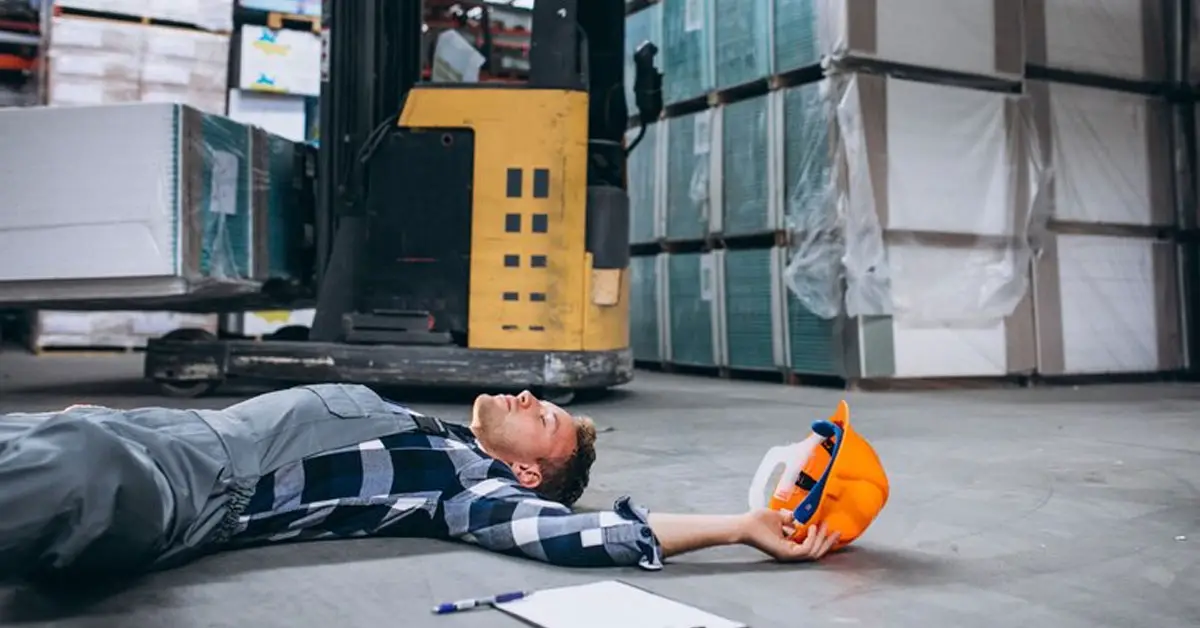Slip and fall incidents are unpredictable and can occur in various locations, exposing anyone to potential harm. Whether it happens on a wet floor in a grocery store, a public space, or a poorly maintained sidewalk, the repercussions can range from minor injuries to severe harm.
Knowing the precise steps to take following such an incident is crucial. This comprehensive guide is designed to walk you through the post-slip-and-fall process, ensuring your safety, well-being, and legal rights remain protected.
1. Evaluate Your Physical Condition:
The initial step after a slip and fall accident is to assess your injuries thoroughly. Check for signs of pain, swelling, or discomfort. If you suspect a severe injury, such as a broken bone or head trauma, seek immediate medical attention.
Even seemingly minor injuries should be documented for potential legal purposes later on. Immediate medical attention not only ensures your well-being but also establishes a crucial record of your injuries, strengthening any potential legal claims.
2. Report the Incident to the Property Owner:
If the slip and fall incident occurred on someone else’s property, like a store or restaurant, promptly report it to the property owner or manager. Provide a detailed account of what transpired and request them to document the incident in their records. Ensure you obtain a copy of the incident report for your records.
3. Collect Supporting Evidence:
Capture photographs of the accident scene, emphasizing the hazardous condition that led to your fall, such as a spilled liquid or uneven surface. Also, gather the names and contact information of any witnesses who observed the incident. Their testimony can be invaluable if you decide to pursue legal action.
4. Seek Immediate Medical Attention:
Even if your injuries appear minor, it’s crucial to seek prompt medical attention. Some injuries, like internal bleeding or a concussion, may not manifest immediately but can have serious consequences if left untreated. Adhere to your doctor’s treatment recommendations and maintain detailed records of all medical expenses related to your injury.
5. Thoroughly Document All Expenses:
Maintain comprehensive records of all expenses and losses resulting from the slip and fall accident. This includes medical bills, prescription medications, transportation costs, lost wages due to missed work, and any other expenses related to your injury. These documents are vital if you choose to file a personal injury claim.
6. Consult with a Personal Injury Attorney:
Considering a personal injury claim? It’s advisable to consult with an experienced attorney specializing in slip and fall cases. They can review the specifics of your case, elucidate your legal options, and guide you on the optimal course of action. An attorney can also handle negotiations with insurance companies, ensuring your rights are safeguarded throughout the process.
7. File a Personal Injury Claim:
Should you decide to pursue compensation for your injuries, your attorney will assist you in filing a personal injury claim against the responsible party’s insurance company. This claim delineates the accident details, the extent of your injuries, and the damages sought.
The insurance company will then investigate and either accept liability, offering a settlement, or contest the claim.
8. Engage in Settlement Negotiations:
In many instances, slip and fall claims are resolved through settlement negotiations rather than proceeding to trial. Your attorney will negotiate with the insurance company on your behalf to secure a fair settlement, legally compensating you for injuries and losses. If a settlement proves elusive, your attorney may recommend pursuing a lawsuit in civil court.
9. Litigation as a Last Resort:
Should negotiations fall short, your attorney might recommend filing a lawsuit against the responsible party. This involves submitting a complaint to the court outlining the accident details and damages sought. The defendant will respond, and the case will progress through the litigation process, encompassing discovery, depositions, and ultimately, a trial.
Slip and fall accidents can have severe consequences, but by following these essential steps, you can enhance the likelihood of obtaining the compensation you deserve. Remember, you don’t have to navigate this process alone – an experienced attorney can offer valuable guidance and support every step of the way.
FAQs:
- Q: What should I do immediately after a slip and fall? A: Assess your injuries, report the incident, and seek medical attention promptly.
- Q: How can I strengthen my legal claim after a slip and fall? A: Document everything – injuries, expenses, and gather evidence like photographs and witness information.
- Q: Is consulting a personal injury attorney necessary? A: Yes, an attorney can guide you through the legal process, handle negotiations, and ensure your rights are protected.
- Q: How are slip and fall claims typically resolved? A: Many cases are settled through negotiations, but if needed, your attorney may recommend pursuing a lawsuit in civil court.

